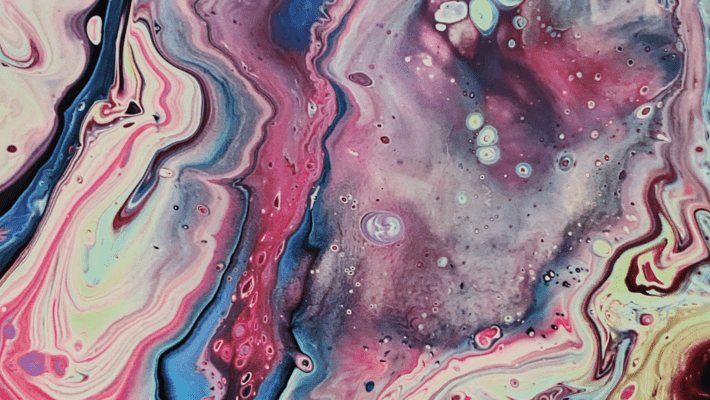
Are Psychedelics Safe? A Beginner's Guide to Psychedelics
Published on 1/25/22
Over the last decade, there has been a renewed interest in using psychedelics for medicinal purposes. Drugs, in general, are beginning to be seen in a much different light compared to the last 50 years. In November 2020, Oregon became the first state to decriminalize all drugs and create a state-funded medical program for psilocybin mushrooms. Psychedelics, specifically psilocybin, have also been decriminalized in several other areas across the United States, prompting a lot of people to ask, "are psychedelics safe and should I use them?" Let's dive into what psychedelic drugs are and what their future in the United States may be.
A History of Psychedelics
 Unsplash
UnsplashFirst, let's discuss what psychedelics are. Psychedelics, also known as hallucinogens, are substances that alter sensory perception and cognitive processes. They alter mood and energy levels and come in a variety of natural and synthetic compounds. The most common psychedelics include LSD (aka acid), DMT, psilocybin (aka magic mushrooms), ecstasy, and mescaline (as found in the peyote cactus). Since you're reading this on Where's Weed and cannabis is known for its psychoactive effects, you may be wondering, "Is marijuana a psychedelic?" The answer is no. While cannabis does have psychoactive properties, the effects are not in line with the known psychedelics meanings.
While psychedelics have gained popularity and increased public favor over the last decade or two, they have been around for thousands of years. The first evidence of psychedelic use comes from ancient Algerian civilizations over 7,000 to 10,000 years ago. They've been used in religious and spiritual contexts throughout known human civilization across most of the globe. It was in the 1940s and 50s, however, that psychedelics began to gain cultural relevance and consistent use in Western cultures. LSD was discovered in 1938, and the psychotherapeutic potentials of the substance were immediately researched and explored by experts across the world. Harvard even had an official psilocybin project in the 1960s, before psychedelics were made illegal. Unfortunately, a heavy association with progressive countercultures throughout the 1960s led to psychedelics being made illegal and labeled a Schedule I drug (along with marijuana) in 1970 with the Controlled Substances Act. Since America's War on Drugs began, psychedelics have been culturally taboo. Only recently have legitimate discussions on a national level begun about psychedelics' medical and psychotherapeutic potentials.
Potential Benefits of Psychedelics
 Unsplash
UnsplashWhen we discuss the potential benefits of psychedelics, we're mostly talking about psychotherapy. Hallucinogens cause altered perceptions when consumed, often resulting in visual distortions, altered views of space and time, euphoria, and other existential shifts in cognition. If a patient takes a hallucinogen in a safe space and is guided into a meditative state, these alterations have been shown to have dramatically positive effects. Introspection is heightened when on psychedelics, and some of the noted health outcomes of guided therapy include overcoming harmful behaviors, identifying negative behaviors and their triggers, improving self-reliance and confidence, and increasing empathy. Because of this, the connection between psychedelics and PTDS treatment is an ongoing focus point in a lot of research. Studies have also looked at psychedelics and depression, anxiety, OCD, addiction, and other conditions, all with positive initial findings.
Additionally, initial studies provide evidence that there is no link between psychedelics and mental illnesses and that patients overwhelmingly claim positive benefits. Of course, because psychedelics have long been illegal in the United States, there is an unfortunately small amount of research to lean on at the moment. Fortunately, it looks like that is changing.
Psychedelics Decriminalization Efforts
 Pixabay
PixabayThe last few years have seen some significant steps forward in psychedelics decriminalization. In 2019, Denver became the first governing body to decriminalize psilocybin in the United States. Then, just one year later, Oregon decriminalized all drugs and created a state-funded psilocybin medical program. Under this new program, a framework is being developed that facilitates a regulated system for manufacturing, transporting, delivering, selling, and purchasing psilocybin products across the state. Other regions across the U.S., including cities in California, Washington, D.C., and Michigan, have created laws that decriminalize the possession and use of natural psychedelics (like psilocybin).
Especially considering the recent wave of marijuana legalization and continued state-support of medical cannabis, the future of psychedelics in the United States looks very promising. While these drugs remain illegal, there are more than 100 cities throughout America considering decriminalization policies for psychedelics. Additionally, Canada has made several major steps on the road to legalization. Recently they have made it legal for terminally ill patients to use psychedelics as medical treatment, and there are even several psilocybin dispensaries throughout the country that ship magic mushroom spores so people can grow their own mushrooms. Continue checking in here at Where's Weed for updates on psychedelic policies and science!
Do you use psychedelics? What do you use psychedelics for, and how do they help you? Let us know your thoughts on legal psychedelics and whether you think they will become legal in the United States. Comment below!
